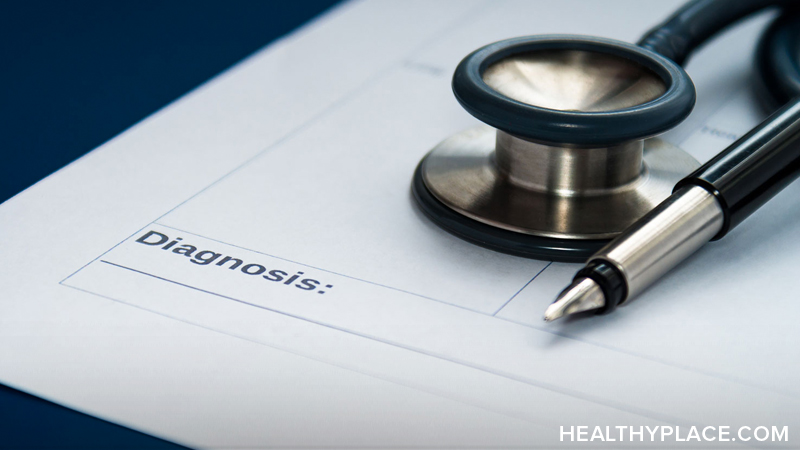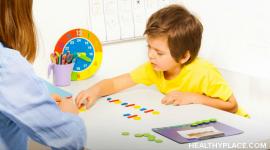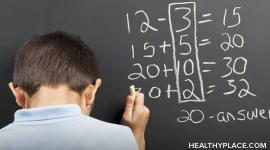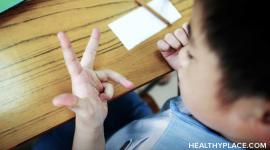How Do I Get a Learning Disabilities Diagnosis for My Child?

A learning disabilities diagnosis occurs when a child has learning difficulties beyond what is expected when kids acquire new skills. Also, when a child’s learning issues are more pronounced than their agemates’ or the problems don’t improve, or your child experiences other signs and symptoms of a learning disability, you can request that your child be formally evaluated. Understanding how learning disabilities are diagnosed can help you ensure that your child receives the right treatment for an accurate diagnosis.
It often becomes evident that a child has a learning disability after they’ve started school. When kids begin to formally learn reading, writing, and math skills, a child with a learning disability begins to struggle to keep up. A learning disabilities diagnosis is a process with many steps. It’s a thorough process that, when completed, can provide you with a profile of your child’s unique learning problems and strengths.
The Procedure for Learning Disabilities Diagnosis
If you are concerned that your child has a learning disability, you have the legal right to request testing. Alternately, your child’s teacher can also start the process if they’re suspicious that your child has a learning disorder. The teacher, school counselor, or principal will contact you to discuss their concerns and get your permission to proceed with the learning disabilities evaluation.
Once an evaluation request has been made, the next step is to begin the testing. If the school disagrees that your child should be tested, you can still proceed. You can find learning disabilities testing services by asking the school for recommendations, checking with your child’s doctor for sources, contacting your insurance company to find out what testers they approve of, or asking friends and family members who have experienced this with their child.
How to Diagnose Learning Disabilities
You and your child can expect certain procedures during a learning disabilities evaluation:
- A variety of tests to assess processing abilities as well as an IQ test to determine if there’s a discrepancy between your child’s potential and their performance.
- An examination of standardized test scores in reading, math, and writing
- A complete review of your child’s educational history
- As your child’s parent, you may be asked to complete a questionnaire to describe what your child is like at home and any difficulties with reading, writing, or math that you observe
Occasionally, kids receive a full learning disabilities evaluation which includes the above measures as well as these more inclusive procedures:
- A medical exam, including a neurological exam, to rule out other causes of a child’s symptoms, as emotional disorders, intellectual and developmental disabilities, and brain diseases can mimic learning disabilities
- A comprehensive review of the child’s developmental, social, and school records
- A discussion with parents about the child’s family history
- Academic testing
- Psychological testing
There is a great deal of careful work that goes into an evaluation of learning disabilities. This means that the outcome of the process is likely to be reliable. It also means that to ensure accuracy, a diagnosis is made by a team of professionals.
Who Can Diagnose Learning Disabilities?
Different people in a child’s life have unique input to contribute to the process. Teachers observe the child’s performance, behavior, emotions, and social interactions with peers; therefore, their insights are crucial. They are usually asked to complete a questionnaire similar to the one parents complete. Evaluators also talk to teachers to hear their observations.
Other school personnel can be asked to share their observations. The principal, nurse, and teachers of special courses like PE, music, or art might give input about the child’s functioning. Other school-based experts that may be involved in the diagnostic process include:
- School psychologist
- Special education expert
- Speech and language pathologist
- Reading specialist
Other professionals who aren’t part of the school system but are skilled at administering and interpreting tests include:
- Clinical psychologist
- Child psychiatrist
- Education psychologist
- Development psychologist
- Speech and language therapist
- Occupational therapist (if sensory disorders are involved)
If the team determines that your child has a learning disability, the next step is to determine the best way to help your child succeed at school.
When Your Child is Diagnosed with a Learning Disability, What’s Next?
Once you get a learning disabilities diagnosis for your child, the next step is to create a plan for their success at school. Called an individualized education program (IEP), this document delineates what your child needs for success at school.
Some members of the evaluation team hold a meeting to discuss the test results and write the IEP to call for the right supports and accommodations for your child’s learning. Once the evaluation process is done, the learning disability diagnosis has been made, and the IEP has been created, your child will be in a better position to learn despite their learning disability.
See Also:
APA Reference
Peterson, T.
(2022, January 17). How Do I Get a Learning Disabilities Diagnosis for My Child?, HealthyPlace. Retrieved
on 2026, March 4 from https://www.healthyplace.com/parenting/learning-disabilities/how-do-i-get-a-learning-disabilities-diagnosis-for-my-child



